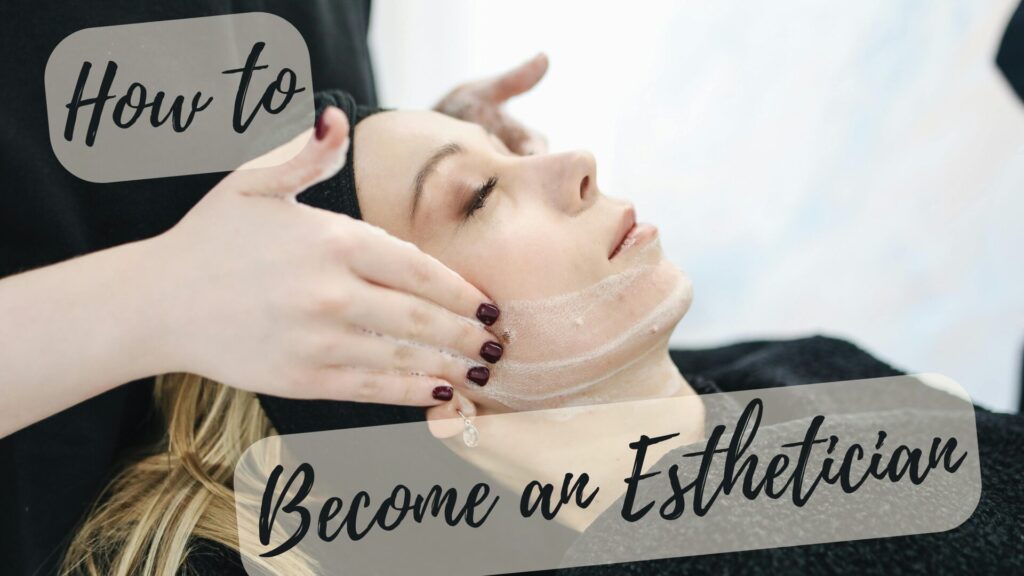
Did you know that the skincare industry is projected to reach a worth of over $180 billion by 2026? With the increasing demand for healthy and flawless skin, the need for skilled estheticians is on the rise. If you have a passion for skincare and want to pursue a rewarding career in the beauty industry, how to become an esthetician may be the perfect path for you.
Key Takeaways:
- Estheticians play a vital role in promoting healthy and beautiful skin.
- The skincare industry is projected to reach a value of over $180 billion by 2026.
- Becoming an esthetician requires proper education, training, and state licensing.
- Estheticians have various career opportunities, including working in spas, salons, and dermatology clinics.
- Continuing education and specialization are crucial for professional growth in the esthetics field.
Table of Contents
What is an Esthetician?
An esthetician, also known as a skincare specialist, is a professional who specializes in maintaining and improving the health and appearance of the skin. With their extensive knowledge of skincare products, techniques, and treatments, estheticians help clients achieve healthier and more radiant skin.
Their role goes beyond providing basic skincare services. Estheticians possess the expertise to analyze clients’ skin conditions, recommend appropriate skincare regimens, and perform a wide range of treatments to address various skincare concerns.
Some of the services offered by estheticians included:
- Facial treatments: From deep cleansing facials to anti-aging treatments, estheticians use their in-depth knowledge of skincare products and techniques to provide customized facial treatments that cater to individual skin types and concerns.
- Exfoliation and peels: Estheticians perform professional exfoliation treatments and chemical peels to remove dead skin cells, unclog pores, and promote skin rejuvenation.
- Skincare consultations: Estheticians assess clients’ skin conditions and provide personalized recommendations for skincare products and routines to achieve and maintain healthy skin.
- Waxing and hair removal: Estheticians are skilled in performing hair removal treatments using waxing or other methods, ensuring smooth and hair-free skin for their clients.
- Makeup application: With their knowledge of different makeup products and techniques, estheticians offer professional makeup application services for special occasions or everyday wear.
- Body treatments: Estheticians also provide body treatments, such as body exfoliation, wraps, and massages, to improve the overall appearance and wellness of the skin.
Related: 10 Natural Remedies: How to Cure Gum Disease Without a Dentist

Estheticians play a crucial role in promoting healthy skin and enhancing clients’ self-confidence. Their expertise in skincare, combined with their ability to provide personalized treatments and recommendations, makes them valuable professionals in the beauty and wellness industry.
| Esthetician Services | Description |
| Facial treatments | Customized treatments to address specific skin concerns and promote skin health. |
| Exfoliation and peels | Professional exfoliation treatments and chemical peels to remove dead skin cells and rejuvenate the skin. |
| Skincare consultations | Assessment of clients’ skin conditions and personalized recommendations for skincare products and routines. |
| Waxing and hair removal | Effective hair removal treatments using waxing or other methods for smooth and hair-free skin. |
| Makeup application | Professional makeup application services for various occasions and desired looks. |
| Body treatments | Treatments such as exfoliation, wraps, and massages to enhance overall skin wellness. |
Education and Training Requirements
To become a successful esthetician, a solid education and proper training are essential. Esthetician education provides aspiring professionals with the knowledge and skills needed to excel in the field of skincare. There are various types of programs available, including certificate programs and associate degrees, that cater to different levels of commitment and career goals.
Let’s take a closer look at the different pathways for esthetician education:
- Certificate Programs: These programs offer a focused and intensive curriculum that can typically be completed in a shorter time frame, such as a few months. They are designed for individuals looking to enter the workforce quickly and start their career as an esthetician.
- Associate Degrees: A more comprehensive option, associate degree programs provide a well-rounded education that includes not only skincare techniques but also business and management skills. This type of program usually takes around two years to complete.
Regardless of the program type, hands-on training is a crucial component of esthetician education. How to become an esthetician, this practical experience allows students to apply their theoretical knowledge in real-world settings and develop the necessary technical skills and professional expertise.
| Education Pathway | Program Duration | Key Highlights |
| Certificate Programs | A few months | – Focused curriculum- Quick entry into the workforce- Intensive practical training |
| Associate Degrees | Around two years | – Comprehensive education- Business and management skills- Extensive hands-on training |
Hands-on training is a crucial component of esthetician education, allowing students to apply their theoretical knowledge in real-world settings.
No matter which pathway you choose, it is important to ensure that the esthetician program is accredited by a reputable accrediting body. This accreditation ensures that the program meets strict quality standards and prepares students for the challenges of the industry.
Transitioning from the classroom to the real world is made easier by participating in internships or externships. These opportunities allow students to gain valuable hands-on experience in a professional setting, working with clients under the supervision of experienced estheticians.
Related: 5 Best Ways: How to Clean Prefinished Hardwood Floors Like a Pro
An Investment in Your Future
Investing in your esthetician education and training is a valuable step towards a rewarding and fulfilling career in the skincare industry. By choosing a program that aligns with your goals and provides comprehensive training, you will be equipped with the skills and knowledge necessary to excel in this competitive field.
Continue reading to discover how to choose the right esthetician school for your education.
Choosing the Right Esthetician School
When it comes to pursuing a career in the esthetics industry, choosing the right esthetician school is crucial. The right school can provide you with the necessary education and training to excel in this field, setting you up for success in your future career. How to become an esthetician. Here are some factors to consider when selecting the best esthetician school program for you:

Accreditation
One of the first things to look for in an esthetician school is accreditation. Accreditation ensures that the school meets certain standards of quality and education, giving you confidence in the program’s legitimacy. Look for schools that are accredited by recognized organizations such as the National Accrediting Commission of Cosmetology Arts and Sciences (NACCAS).
Curriculum
Review the curriculum of each school you are considering. Look for programs that offer a comprehensive range of courses that cover all aspects of esthetics, including skincare treatments, product knowledge, makeup application, and spa techniques. How to become an esthetician, A well-rounded curriculum will provide you with the knowledge and skills needed to thrive in the industry.
Faculty
The faculty at an esthetician school plays a crucial role in your education. Research the qualifications and experience of the instructors at each school. Ideally, they should have extensive experience working in the field and be passionate about teaching. Experienced and knowledgeable instructors can offer valuable insights and mentorship throughout your educational journey.
Student Support Services
Consider the type of support services offered by the esthetician schools you are interested in. Look for schools that provide resources such as career guidance, job placement assistance, and ongoing support after graduation. How to become an esthetician. These support services can enhance your learning experience and help you transition smoothly into your career.
Visiting Schools and Talking to Current Students
To truly get a feel for an esthetician school, it’s important to visit the campuses and talk to current students. This will give you firsthand insight into the school’s atmosphere, facilities, and the experiences of current students. Take the opportunity to ask questions and gather information that will help you make an informed decision.
Remember, choosing the right esthetician school is an important step in your journey towards becoming an esthetician. Take the time to research and consider your options, evaluating each school based on factors such as accreditation, curriculum, faculty, and student support services. Visiting schools and talking to current students will provide valuable firsthand information to guide your decision-making process.
By selecting the best esthetician school for your needs, you’ll be laying a strong foundation for your career and setting yourself up for success in the competitive field of esthetics.
| Factors to Consider | Importance |
| Accreditation | Ensures quality education |
| Curriculum | Comprehensive and relevant courses |
| Faculty | Experienced and knowledgeable instructors |
| Student Support Services | Career guidance and job placement assistance |
| Visiting Schools and Talking to Current Students | Insight into campus atmosphere and student experiences |
Choosing the right esthetician school is an important decision that can impact your future success. Consider the factors mentioned above and make an informed choice to ensure you receive the best education and training in the esthetics industry.
How to Become an Esthetician School Program
When enrolling in an esthetician school program, students can expect a comprehensive curriculum that covers various aspects of skincare and beauty treatments. The curriculum is designed to provide students with the knowledge and skills necessary to excel in the field of esthetics and offer effective skincare solutions to clients.
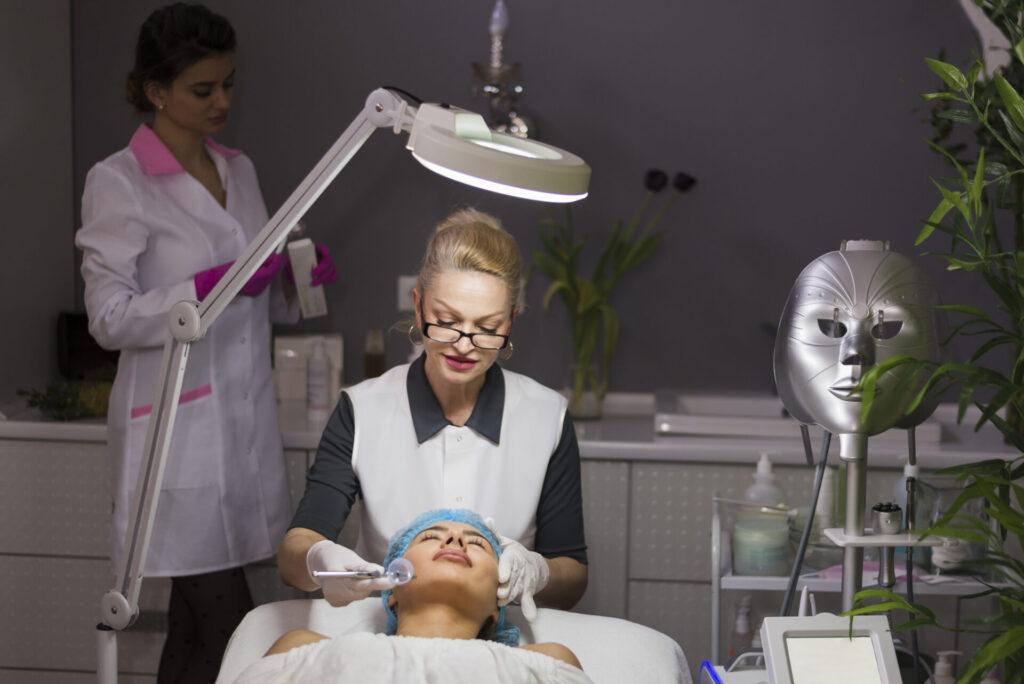
The esthetician school program typically includes a combination of theoretical classes and hands-on practical training. Students will learn about the structure and function of the skin, various skin conditions and disorders, and the products and treatments used to address these issues.
Here are some common courses and subjects that are typically included in an esthetician program:
- Facial treatments: Students learn different facial techniques for cleansing, exfoliating, toning, and moisturizing the skin. They also learn about facial massage techniques and the use of equipment such as steamers and facial masks in esthetician school program.
- Skincare products: Students learn about different skincare products, including cleansers, toners, moisturizers, serums, and masks. They gain an understanding of the ingredients used in these products and how to choose the most appropriate products for specific skin types and conditions.
- Makeup application: This course focuses on teaching students the techniques of professional makeup application, including foundation matching, contouring, highlighting, and creating different makeup looks for various occasions.
- Spa techniques: Students are introduced to various spa treatments such as body scrubs, wraps, and massages. They learn in esthetician school program, how to perform these treatments safely and effectively to provide a relaxing and rejuvenating spa experience to clients.
- Waxing and hair removal: In this course, students learn different hair removal techniques such as waxing, threading, and sugaring. They learn how to perform hair removal procedures safely and effectively, while minimizing discomfort for the client.
These are just a few examples of the courses that may be included in an esthetician school Program. The specific curriculum may vary from one program to another, but the goal is to provide students with a solid foundation in all aspects of skincare and esthetic treatments.
By completing a comprehensive esthetician program, students gain the necessary knowledge and skills to pursue a successful career in the skincare industry. They are equipped with the expertise to address various skin concerns, provide personalized skincare recommendations, and help clients achieve healthy and glowing skin.
Practical Training and Clinical Experience
In order to become a skilled esthetician, practical training and clinical experience are absolutely essential. These hands-on experiences provide students with the opportunity to apply their knowledge in a real-world setting and develop the necessary skills to excel in their careers.
During practical training sessions, students have the chance to work directly with clients, under the guidance of experienced professionals. This invaluable experience allows them to practice various skincare techniques, perform facials, administer skincare treatments, and gain proficiency in the use of advanced esthetician tools and equipment.
A major advantage of practical training is that it allows students to understand the importance of customer service and professionalism in the esthetics industry. By working with real clients, students learn how to effectively communicate, listen to client needs, and provide personalized skincare recommendations. These interactions help cultivate strong client relationships and contribute to a successful career as an esthetician.
Practical training not only allows students to refine their technical skills but also helps build confidence in their abilities. It provides a platform for students to overcome challenges and learn from experienced professionals in a supportive environment.
Additionally, clinical experience is a crucial aspect of an esthetician program. Clinical experience provides students with the opportunity to work in a professional skincare setting, such as a spa or dermatology clinic. These clinical placements expose students to a wide range of skincare conditions and allow them to collaborate with other healthcare professionals.
Through clinical experience, students learn how to assess skin conditions, develop customized treatment plans, and provide expert skincare advice. They also gain exposure to advanced skincare technologies and procedures, further expanding their knowledge and skill set.
Overall, practical training and clinical experience are vital components of an esthetician program. They lay the foundation for a successful career in the skincare industry by equipping students with the necessary skills, knowledge, and confidence to excel in their roles as skincare specialists.
What is an Esthetician Salary
Here’s a general overview of esthetician salaries in the United States:

- Average annual salary: According to the Bureau of Labor Statistics (BLS), the median annual salary for estheticians was $31,290 in May 2020.
- Salary range: The BLS also reports that the lowest 10% of earners made less than $20,930, and the highest 10% of earners made more than $59,790.
- Monthly salary: Based on ZipRecruiter data, the average monthly salary for estheticians in the US is $3,781. The range falls between $1,583 and $6,083, with the 25th percentile earning $2,666 and the 75th percentile earning $4,666
State Licensing Requirements
Becoming a licensed esthetician is a crucial step towards establishing a successful career in the skincare industry. Each state in the United States has specific licensing requirements that aspiring estheticians must fulfill. These requirements ensure that professionals have the necessary skills and knowledge to provide safe and effective treatments to their clients.
The process of obtaining an esthetician license typically involves both written and practical exams. These exams evaluate the candidate’s understanding of skincare techniques, sanitation practices, and state regulations. Written exams assess theoretical knowledge, while practical exams test practical skills in performing various skincare procedures.
Maintaining licensure is equally important. Most states require estheticians to renew their licenses periodically, which often involves completing continuing education courses. These courses help estheticians stay updated with the latest trends, techniques, and safety regulations in the industry.
Here is a table detailing the state licensing requirements for estheticians in some states:
| State | Education Hours | Written Exam | Practical Exam | Continuing Education |
| California | 600 | Yes | Yes | 10 hours every 2 years |
| Florida | 260 | Yes | Yes | 16 hours every 2 years |
| Texas | 750 | Yes | Yes | 4 hours every 2 years |
| New York | 600 | Yes | Yes | 7 hours every 2 years |
It’s important to note that these requirements may vary from state to state, so it is essential to research the specific licensing requirements in the state where you plan to practice as an esthetician. This will ensure that you meet all the necessary criteria and can embark on your journey towards a rewarding and fulfilling career in skincare.
Career Opportunities for Estheticians
Becoming an esthetician opens up a world of exciting career opportunities in the skincare industry. Whether you’re passionate about offering rejuvenating spa experiences or working alongside dermatologists, there are various paths to explore. Estheticians can find employment in a range of settings, from luxurious spas to high-end salons and dermatology clinics.
One of the key advantages of a career in esthetics is the potential for growth and advancement. As skincare becomes increasingly valued in society, the demand for skilled estheticians continues to rise. This opens up doors to higher-tier positions, such as lead esthetician, spa manager, or even owning your own skincare business.
Let’s take a closer look at some of the career opportunities available to estheticians:
Spa Esthetician
Working in a spa environment allows estheticians to provide a wide range of treatments and services to clients looking for relaxation and skin rejuvenation. From facials and body wraps to aromatherapy and massage, spa estheticians have the opportunity to create a blissful and calming experience for their clients.
Medical Esthetician
For those interested in the intersection of skincare and advanced medical procedures, a career as a medical esthetician could be the perfect fit. Medical estheticians work alongside dermatologists, plastic surgeons, and other medical professionals to provide specialized skincare treatments, such as laser procedures, chemical peels, and microdermabrasion.
Esthetician Educator
If you have a passion for sharing your knowledge and skills with others, a career as an esthetician educator might be the right path for you. Esthetician educators work in schools or training centers, teaching aspiring estheticians the techniques and theory behind skincare treatments. This role allows you to contribute to the growth of the next generation of estheticians.
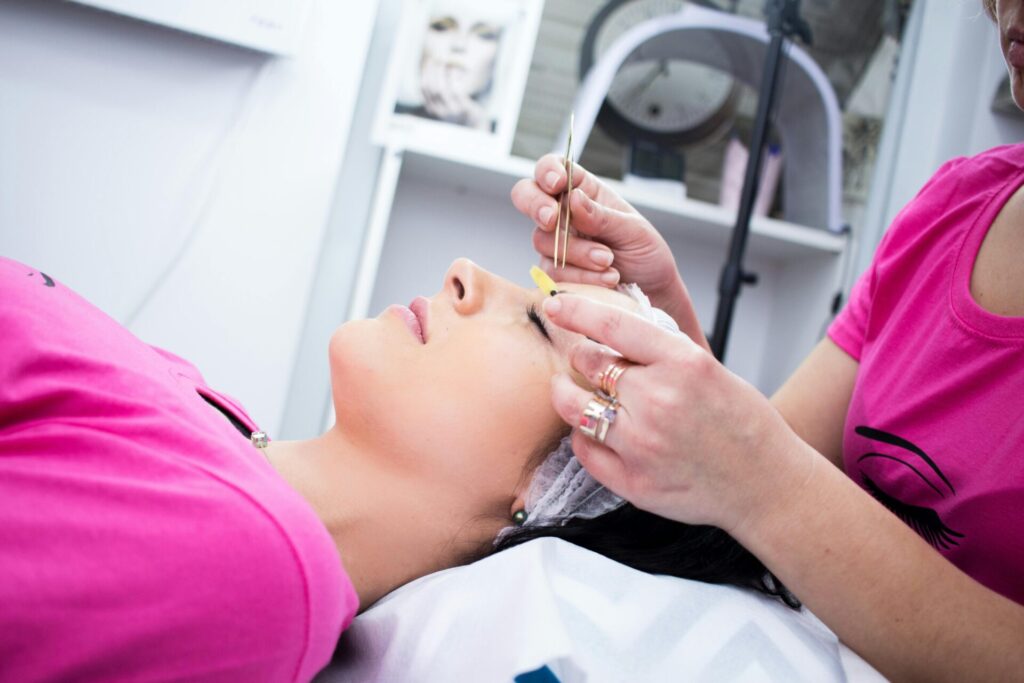
Retail Skincare Specialist
Estheticians with a keen interest in skincare products and beauty retail can find fulfilling careers as retail skincare specialists. In this role, you’ll work in beauty stores or skincare boutiques, offering personalized advice and guidance to clients on skincare routines and product recommendations. This enables you to combine your passion for skincare with salesmanship.
Makeup Artist
If you have a flair for creativity and enjoy enhancing people’s natural beauty, pursuing a career as a makeup artist can be a rewarding choice. Many estheticians pursue additional training in makeup application to offer professional makeup services for various occasions such as weddings, photoshoots, and special events.
No matter which career path you choose, the esthetician field offers abundant opportunities for personal growth and professional success. With dedication and a commitment to continuous learning, you can carve a fulfilling and prosperous career in the skincare industry.
Continuing Education and Specializations
As the field of esthetics continues to evolve, estheticians must prioritize continuing education and specialized training to stay at the forefront of industry advancements. By pursuing advanced esthetician training and earning specialized certifications, professionals can enhance their skills, expand their knowledge, and unlock new career opportunities.
Esthetician Continuing Education
Continuing education plays a crucial role in an esthetician’s career development. It allows estheticians to stay updated with the latest skincare techniques, products, and technologies, ensuring they can offer the most effective treatments to their clients. Through esthetician continuing education programs, professionals can deepen their understanding of topics such as advanced skincare techniques, chemical peels, microdermabrasion, and anti-aging treatments.
Advanced Esthetician Training
For estheticians seeking to expand their expertise and offer specialized services, advanced esthetician training programs provide valuable knowledge and skills. These programs focus on specific areas of esthetics, such as laser therapies, advanced facial treatments, or medical esthetics. By completing advanced training, estheticians can differentiate themselves from their peers and attract a wider clientele.
Esthetician Certifications
Earning specialized certifications demonstrates an esthetician’s commitment to excellence and professional growth. Certifications in areas like advanced skincare techniques, holistic skincare, or oncology esthetics can validate an esthetician’s expertise and enhance their credibility. Additionally, esthetician certifications can open doors to specialized job opportunities in medical spas, wellness centers, or dermatology clinics.
“Continuing education and specialized training are essential for estheticians to thrive in the ever-evolving skincare industry. By investing in their knowledge and skills, estheticians can provide exceptional services to their clients and carve out a niche for themselves in the competitive market.” – Jane Smith, Licensed Esthetician
Estheticians who prioritize continuing education and specialized training position themselves as industry leaders and experts in their field. The additional knowledge and credentials not only benefit their clients but also contribute to their professional growth and success. By staying up-to-date with the latest advancements and earning specialized certifications, estheticians can elevate their careers and make a lasting impact on the field of esthetics.
Building a Successful Esthetician Business
Starting your own beauty business can be an exciting and rewarding venture. But to turn your passion into a profitable venture, you need a solid plan and effective marketing strategies. This section provides valuable tips and advice on how to build a successful esthetician business, from attracting clients to managing your finances.
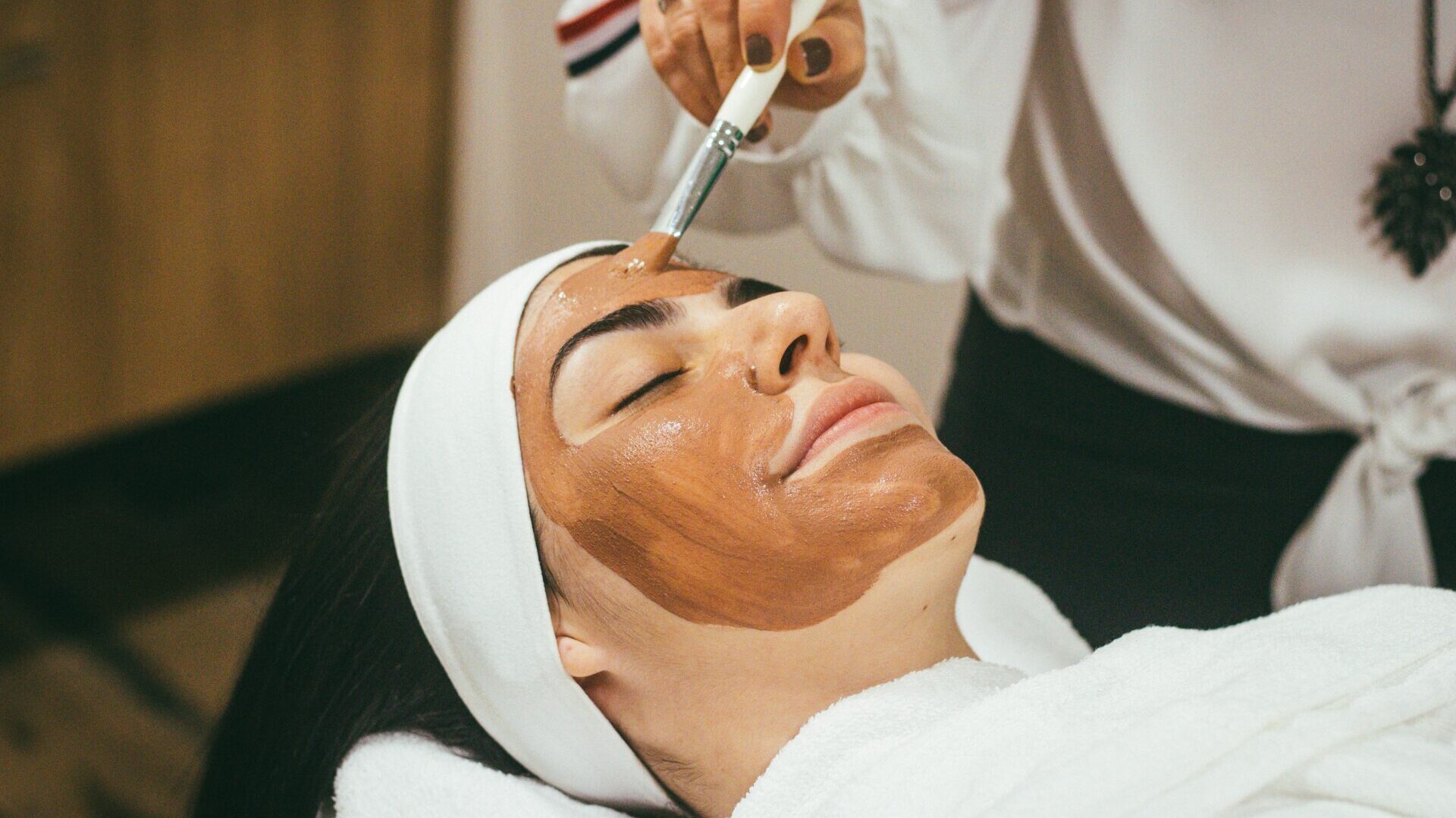
Creating a Marketing Strategy
One of the key factors in building a successful esthetician business is developing a strong marketing strategy. Here are some effective marketing techniques to help attract clients:
Build a professional website: A well-designed website can showcase your expertise and services, allowing potential clients to learn more about your esthetician business.
Utilize social media: Establish a presence on popular platforms like Facebook and Instagram to promote your services, share skincare tips, and engage with potential clients.
Offer promotions and discounts: Tempt new clients with special offers and discounts to encourage them to try your services.
Collaborate with local businesses: Form partnerships with complementary businesses, such as hair salons or nail studios, to cross-promote each other’s services.
Building and Retaining a Client Base
Building a loyal client base is crucial for the success of your esthetician business. Here are some tips for attracting and retaining clients:
Provide exceptional customer service: Treat every client with professionalism, kindness, and attentiveness to create a positive experience that they will want to share with others.
Offer personalized skincare solutions: Tailor your services to each client’s individual needs and concerns, providing customized skincare treatments for optimal results.
Encourage client referrals: Offer incentives for clients to refer their friends and family to your business. Word of mouth referrals can be a powerful marketing tool.
Maintain ongoing communication: Stay in touch with your clients through regular newsletters, special offers, and skincare tips to keep them engaged and informed.
Managing Your Finances
Proper financial management is essential for the long-term success of your esthetician business. Here are some key tips to help you stay on top of your finances:
Create a budget: Determine your expenses and income projections to develop a realistic budget that allows for growth and sustainability.
Track your expenses: Keep detailed records of all your business expenses, including supplies, marketing costs, and rental fees.
Invest in essential tools and products: Allocate a portion of your budget to purchase high-quality skincare products and equipment to deliver exceptional services to your clients.
Consider insurance coverage: Protect your esthetician business by investing in liability insurance, which can provide coverage in the event of accidents or lawsuits.
By implementing these strategies and focusing on professionalism and customer satisfaction, you can build a successful esthetician business that thrives in the competitive skincare industry.
Professional Organizations and Networking
Joining professional organizations within the esthetician industry can provide numerous benefits to both aspiring and established skincare specialists. These organizations offer a wealth of resources, networking opportunities, and industry insights that can contribute to professional growth and success.
By becoming a member of esthetician professional organizations and skincare associations, estheticians gain access to a vast network of industry professionals and like-minded individuals. This networking opportunity allows for valuable connections, mentorship possibilities, and the potential to collaborate on projects or initiatives.
Moreover, these professional organizations often host events, conferences, and workshops that provide invaluable educational resources and keep estheticians up to date with the latest trends, techniques, and advancements in the skincare industry. Industry experts and thought leaders frequently contribute to these events, offering insights and guidance to further enhance the estheticians’ skills and knowledge.
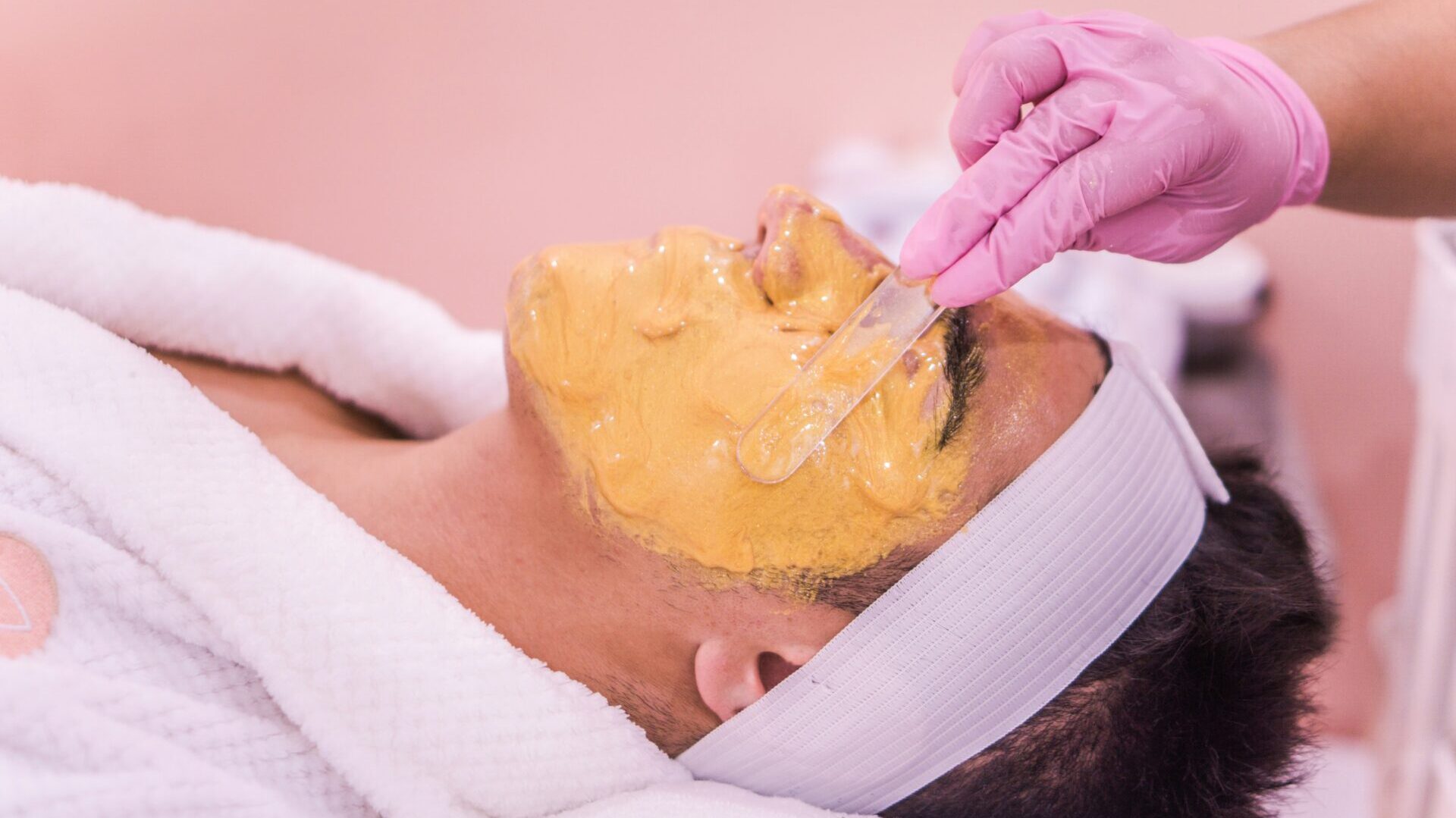
Additionally, esthetician professional organizations advocate for the interests and rights of their members, working to elevate the standards of professionalism and ethics within the field. They actively engage in legislative efforts, ensuring that estheticians have a voice in shaping regulations and policies that impact their profession.
By engaging with these organizations, estheticians can stay informed about changes in the industry, such as new product launches, emerging skincare trends, and updated regulations. This knowledge helps estheticians remain competitive and provide the highest quality care and services to their clients.
Conclusion
In conclusion, becoming an esthetician requires a combination of education, training, and licensure. Throughout this comprehensive guide, we have discussed the key steps and essentials to embark on this rewarding career path.
First and foremost, obtaining proper education and training is essential. You can choose from a variety of esthetician programs, such as certificate programs or associate degrees, that provide a well-rounded curriculum.
Once you have completed your education, it is crucial to meet the state licensing requirements. This involves passing both written and practical exams, which showcase your expertise in the field of skincare.
By following these necessary steps, you can position yourself for success as an esthetician. Embrace continuing education opportunities to deepen your knowledge and consider specializing in specific areas of skincare to expand your career options. Remember to build a strong professional network by joining esthetician organizations and connecting with fellow industry professionals.
Now is the time to pursue your dream of becoming an esthetician. Take advantage of the resources available, develop your skills, and enter the skincare industry with confidence.
FAQ
What is an Esthetician?
An esthetician is a skincare specialist who provides various services to clients, including facials, skincare treatments, and hair removal. They are trained professionals who help clients improve and maintain the health and appearance of their skin.
What are the education and training requirements of how to become an esthetician?
To become an esthetician, you typically need to complete a state-approved esthetician program. These programs can vary in length and format but often include both classroom instruction and hands-on training. Upon completion of the program, you must pass a licensing exam to become a licensed esthetician.
How do I choose the right esthetician school program?
When choosing an esthetician school program, it’s important to consider factors such as accreditation, curriculum, faculty, and student support services. You should also visit schools, talk to current students, and gather information about their success rates and job placement assistance.
What courses are included in an esthetician school curriculum?
Esthetician school curriculums typically include courses such as facial treatments, skincare products, makeup application, waxing and hair removal, and spa techniques. These courses provide students with the skills and knowledge they need to be successful in their careers as estheticians.
What is the importance of practical training and clinical experience in an esthetician program?
Practical training and clinical experience are crucial in an esthetician program as they allow students to apply their knowledge in a real-world setting and gain hands-on experience. This prepares them for their future careers by familiarizing them with common skincare procedures and techniques.
What are the state licensing requirements for estheticians?
State licensing requirements for estheticians vary, but they typically involve both a written and practical exam. You must pass these exams to obtain your esthetician license. It’s important to research and understand the specific requirements of the state in which you plan to practice.
What career opportunities are available for estheticians?
Estheticians have a variety of career opportunities available to them. They can work in spas, salons, dermatology clinics, or even start their own businesses. With the increasing demand for skincare services, there is a growing need for qualified estheticians in the industry.
How can estheticians continue their education and specialize in specific areas?
Estheticians can continue their education and specialize in specific areas by participating in advanced training programs, obtaining specialized certifications, or attending workshops and conferences. Continuing education helps estheticians stay up-to-date with the latest advancements in skincare and expand their expertise.
How can I build a successful esthetician business?
Building a successful esthetician business requires strategic planning, effective marketing, and excellent customer service. It’s important to create a strong online presence, build a loyal client base, and continuously promote your services. Managing finances and maintaining professionalism are also key factors in running a successful business.
Are there any professional organizations or networking opportunities for estheticians?
Yes, there are professional organizations and networking opportunities available for estheticians. Joining these organizations can provide access to valuable resources, networking events, educational opportunities, and industry updates. Some popular professional organizations for estheticians include the Associated Skin Care Professionals (ASCP) and the National Coalition of Estheticians, Manufacturers/Distributors & Associations (NCEA).

Your writing is so eloquent and engaging You have a gift for connecting with your readers and making us feel understood
Simply wish to say your article is as amazing The clearness in your post is just nice and i could assume youre an expert on this subject Well with your permission let me to grab your feed to keep updated with forthcoming post Thanks a million and please carry on the gratifying work.